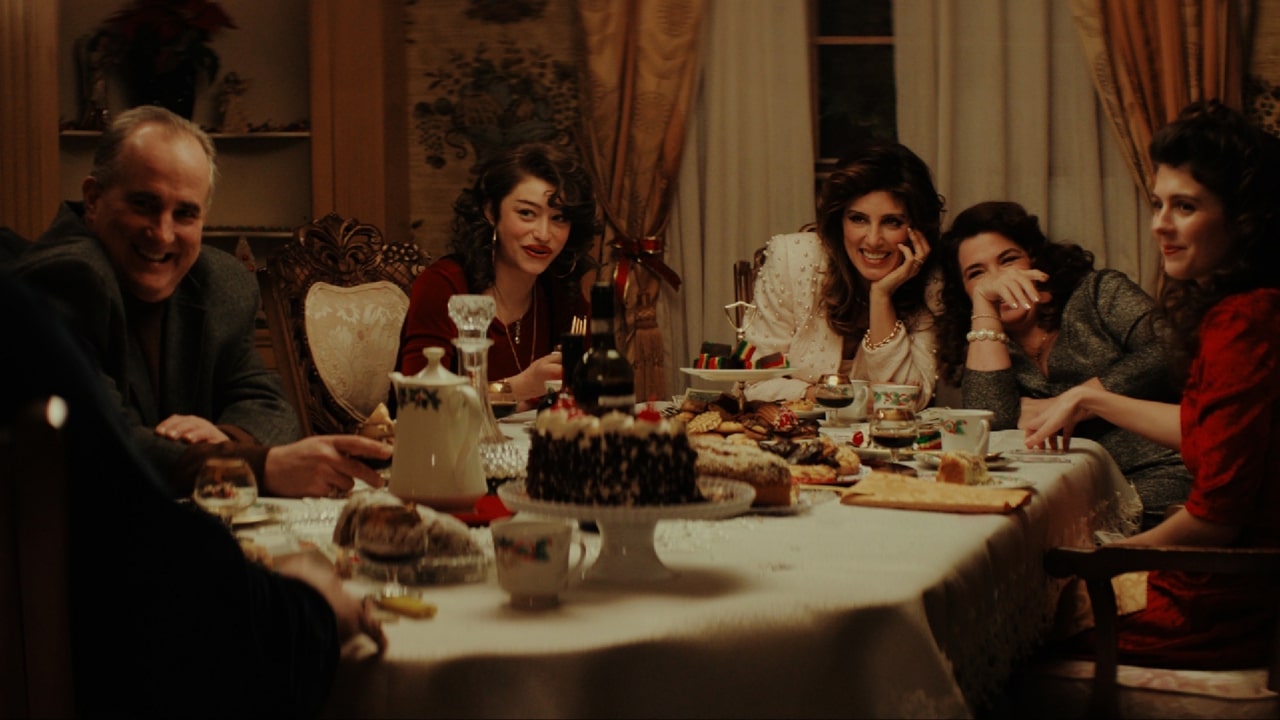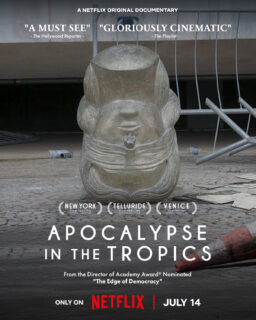“Fresh Kills” stands tall alongside the best post-“Godfather” gangster movies, and it stands apart because of how it focuses on the wives, girlfriends, and daughters of organized crime in a genre that more often pushes them to the margins. Small in scale but rich in character and incident (and brutal violence), it’s the debut feature by writer and director Jennifer Esposito, a veteran film and TV actress and a native of Staten Island, New York, where this 1980s-’90s period drama is set. “Fresh Kills” would make a fascinating double-feature with Martin Scorsese’s breakthrough feature “Mean Streets,” which is also about a small group of mob-entangled young people grappling with whether to give into the code, social condition, and predetermined life paths handed to them at birth, or rebel and be ostracized (or beaten, or murdered and disappeared).
It’s also packed with details so specific that you suspect that the source wasn’t another movie or a book but someone’s life—such as the moment when a child goes wandering through a mob-owned business and innocently discovers something a child shouldn’t know about; or the nonchalant way that mob-connected teenagers flirt, smoke, carouse, and get in fights outside of a funeral (which tells you how common funerals are in this environment).
Esposito’s direction is clean and efficient—not a lot of cool flourishes here, just a camera that always seems to be the right distance from the emotions it’s capturing, and performances that are sensibly modulated whether the characters are whispering innuendo and veiled threats or beating people up. But it’s the screenplay that impresses most. This is, in the most complimentary sense, a film obviously written by an actor, with an instinctive sense of what actors need to do their jobs well: motivation, clarity of purpose, and bits of physical business that can help fill in meaning, and add humor and surprise to otherwise grim material.
As Rose, the protagonist and audience stand-in, Emily Bader fleshes out the familiar role of the trapped young person who wants to be free but doesn’t want to lose her family in the process (a story that’s more often set in small rural towns, though big-city neighborhoods are functionally similar). The supporting cast gives her plenty to react against, from the swaggering volatility of her chain-smoking older sister Connie (Odessa D’Azion) to the deluded and self-negating loyalty talk of her mom (Esposito, stepping in front of her own camera) to the genial menace of her father (Domenick Lombardozzi), who smiles as he tests his family’s loyalty by asking, “Do you trust me to fly this plane?” then repeatedly crashes it and expects hosannas and gratitude.
The film’s most intense moments aren’t the beatdowns and killings but ones when Rose is put on the spot by another member of her tight-knit community and pressured to make a decision she doesn’t want to make. We’ve learned enough about her world to know that every such decision is ultimately not about her or even about the person doing the asking, but the need to constantly fortify the established order, whether it’s by saying yes to a marriage proposal or agreeing not to mention a violent crime that happened in front of you. The TV sets glimpsed in various homes and businesses often show tabloid talk series like “The Sally Jesse Raphael Show,” making a lurid, clownish spectacle of the quiet desperation Esposito’s characters are born into and could die trying to escape. The closest equivalent to “Fresh Kills” in overall feeling is probably the HBO version of Elena Ferrante’s “My Brilliant Friend,” a 1950s period piece set in a small Sicilian town dominated by organized crime, where women got entangled in men’s bloody business, even when they tried to keep their heads down and live “normal” lives.

“The Graduates” is a quiet but wrenching drama by writer/director Hannah Peterson about a rite of passage that shouldn’t be one: surviving a school shooting. It follows a group of high school students/gun violence survivors during their final weeks before the end of the school year. Our guide is soon-to-graduate Genevieve (Mina Sundwall), who lost her boyfriend Tyler in the massacre, but she’s just one part of a thoughtfully fleshed-out ensemble that includes many other students (including Tyler’s basketball teammate Ben, played by “Moonlight” star Alex Hibbert, who skipped town and only recently returned, and sometimes still calls Tyler’s phone and leaves voicemails on it). Among the grownups, John Cho shines as a basketball coach who stays as cool and pleasant as he can even though his heart has been broken, and gets broken anew each time one of the shooting survivors comes to him for advice or to share good news and he has to think about what they all lost.
There have been a lot of school shooting dramas and documentaries in recent years; that it has become its own genre of movie with certain tropes and images you always expect to see (such as a survivor obsessively calling a victim’s phone, or the lockdown drill that re-traumatizes everyone, or the stalker-like shots of school hallways, perhaps first unveiled in Gus van Sant’s 2003 Columbine massacre riff “Elephant”) adds to the already mournful experience of watching this film.
Death by gunfire is now the number one cause of death for US children and teenagers. It’s the quarter-century-long wave of massacres at schools by assailants wielding handguns, rifles, and shotguns that pushed death by gunshot to the top of the list. What can be done? The movie doesn’t dwell on or even particularly pose that question because it’s too busy focusing on what the survivors of gun violence go through in the aftermath. It’s questionable whether anybody who thinks things are just fine as they are would even learn of the existence of a film like “The Graduates,” much less decide to watch it. But it will speak to those who’ve been through the horror or know someone who has and realize that the epidemic of gun violence in schools is not an act of God but a problem that could be solved if enough people agreed to try.

“The Secret Art of Human Flight” is the kind of knowingly quirky but sincere indie comedy-drama that might have sold for five million dollars at the Sundance Film Festival back when there were enough art-house theaters and home video companies to recoup the purchase price. Which is not the same thing as saying that it’s a great movie—it’s okay and sometimes better than that. Writer Jesse Orenstein and director H.P. Mendoza are good at poker-faced goofiness, and there’s a characteristically excellent supporting performance by “Sound of Metal” star Paul Raci as the guru who promises to teach a grieving widower (Grant Rosenmeyer) how to fly even as he’s being investigated on suspicion of murder. The best scenes are the quiet, often philosophy-driven conversations between Raci and Rosenmeyer.












